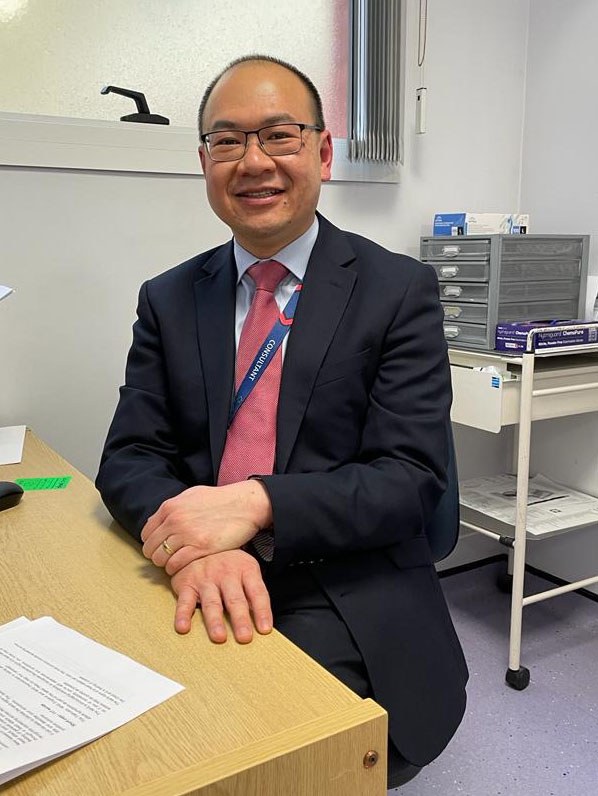Matters of the heart—#HelpUsHelpYou
03 February 2023
February is not only the month for spreading love during Valentine’s Day, but also a great time to shed light on heart health.

Heart and circulatory disease, also known as cardiovascular disease, causes a quarter of all deaths in the UK and is one of the largest causes of premature mortality in deprived areas.
The NHS is encouraging everybody to recognise the potential signs of a heart attack so, if you or somebody you’re with experiences any symptoms, you know how to access help as quickly as possible.
The early signs of a heart attack can vary and may not always feel severe. The most common symptoms include a squeezing sensation across the chest and a feeling of unease.
Our Consultant Cardiologist Dr Fu Siong Ng (pictured above) said: “It is crucial that patients recognise the symptoms of a heart attack and seek medical advice as soon as possible. We often say that ‘time is muscle’, referring to the fact that every minute saved will reduce the amount of heart muscle damaged by the heart attack—the earlier the heart attack is treated, the better the long-term outcome for the patient.”
New research reveals that just two in five of those surveyed knew sweating was a sign of a heart attack, and only one in four people knew feeling weak, lightheaded or a having a feeling of general unease were also symptoms. In addition, three-quarters of those surveyed thought a heart attack could be referred to as a cardiac arrest, and nearly half did not recognise squeezing across the chest as a symptom of a heart attack.
It can be easy to dismiss the early signs of a heart attack, but it’s never too early to call 999 and describe your symptoms. The faster you act, the better the chance of a positive outcome.
Look out for more of this campaign on our Trust Twitter, Instagram and Facebook accounts using #HelpUsHelpYou.

